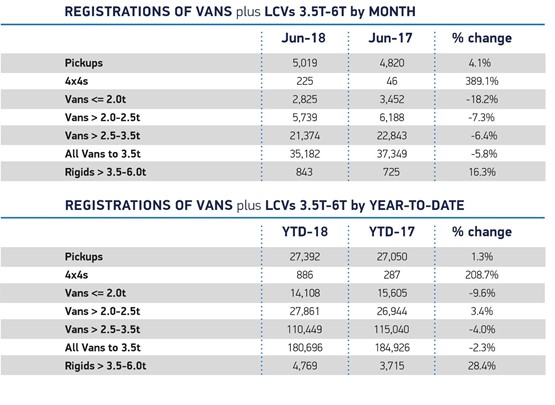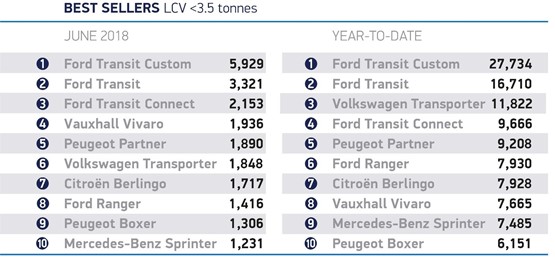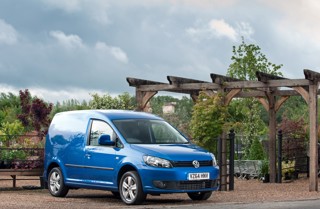Light commercial vehicle (LCVs) registrations declined in June, according to figures released by the Society of Motor Manufacturers and Traders (SMMT).
It shows that 35,182 new vans and pick-ups were registered last month, representing a 5.8% decline on June 2017.
Small, medium and large sized vans all saw demand fall in the month, down 18.2%, 7.3% and 6.4% respectively. Meanwhile, the number of pick-ups increased in June, up 4.1% to 5,019 units.
Year-to-date, 180,696 new LCVs have been registered, a drop of 2.3% on the first half of 2017, with the bulk of the decline in the market for vans weighing more than 2.5-3.5 tonnes. However, demand remains at a high level, up more than a third (35.7%) on the same period five years ago.
Mike Hawes, SMMT chief executive, said: “UK van registrations have fluctuated throughout the first half of this year, reflecting variable buying cycles which are a natural feature of the market.
“Despite this and recognising the fact that demand is still at a historically high level, the overall trend is downwards, with Brexit uncertainty and its negative effect on business confidence threatening long-term growth.”
Sue Robinson, director of the National Franchised Dealers Association (NFDA), said: “Factors such as road tax changes or the soon to be introduced Worldwide Harmonised Light Vehicle Test Procedure (WLTP) emission standards for cars is not due to affect commercial vehicles of this size until September 2019. Therefore this month’s figures are a true and fair reflection of the market and generally indicate the reservations and caution expressed by all business in these uncertain economic times.”
Russell Adams, commercial vehicle manager at Lex Autolease, said: “A fall in new van registrations isn’t surprising at this time of year, as business purchases traditionally taper off during the summer holiday period.
"In general, the market has been defined by stability this year, with neither a consistent rise or fall in registrations. That’s because LCVs continue to be key to logistics operators’ strategies –particularly in the ecommerce sector –as more products are delivered direct to homes, rather than being bought in stores.
“We’re also seeing growing interest in electric vans. With emissions zones set to be enforced across the UK, they offer a potential solution to the ‘last mile’ delivery problem.
"While range limitations make these vehicles unsuitable for long distance courier roles, they are perfectly suited to short hops in urban areas and could help businesses avoid the charges associated with driving in low-emissions zones.”
























Login to comment
Comments
No comments have been made yet.